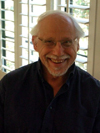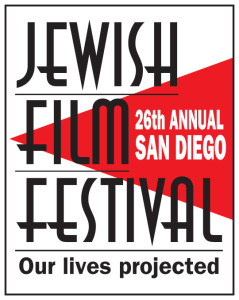By Jack Forman

 SAN DIEGO — Righteous Rebel: The Story of Rabbi Avi Weiss, a wide-ranging, celebratory feature-length documentary by filmmaker Phil Schneider honoring the life and the activism of the well-known and controversial Orthodox Rabbi who has been in the public limelight for almost a half a century screened before an attentive audience of about 125 people at the 2016 San Diego Jewish Film Festival on February 9.
SAN DIEGO — Righteous Rebel: The Story of Rabbi Avi Weiss, a wide-ranging, celebratory feature-length documentary by filmmaker Phil Schneider honoring the life and the activism of the well-known and controversial Orthodox Rabbi who has been in the public limelight for almost a half a century screened before an attentive audience of about 125 people at the 2016 San Diego Jewish Film Festival on February 9.
The film was introduced by the filmmaker, whose family members are active participants in Rabbi Weiss’s Modern Orthodox synagogue (The Hebrew Institute of Riverdale in The Bronx) and by Rabbi Devorah Marcus, the spiritual leader of Temple Emanu-El (a Reform synagogue in San Diego), which sponsored the film’s screening at the Jewish Film Festival.
Rabbi Weiss was one of the first members of the American rabbinate to take up the cause of the Soviet refuseniks during the 1970s. He participated in many public protests all over the world, and he was influential in creating a groundswell of support in Congress for the Russian Jews whom the Soviets kept captive for many years before they were permitted to emigrate. As the film effectively shows, he became a spokesperson for and activist in many other Jewish (and secular) causes including protests against building a convent on the grounds of Auschwitz, U.S. government’s refusal (until recently) to parole Jonathan Pollard, Palestinian terrorism, the awarding of the Nobel Peace Prize to Yassir Arafat, and Holocaust Revisionism.
As Schneider and Rabbi Marcus made clear in their introductions, the film traces this activism to Rabbi Weiss’s view of the momentous events recorded in Beresheit (Genesis) after Cain murders Abel and G-d asks Cain where his brother is. In a clip of the Rabbi talking in his living room appearing early in the documentary, Rabbi Weiss states: “The first human question recorded in the Bible is Cain’s response after G-d asks where his brother is: ‘Am I my brother’s keeper?’ Do you know why there is no answer given in that chapter? It’s because the whole Torah, our entire lives, asks if we are our brothers’ and sisters’ keepers. Every moment of every day we have the mandate to respond: ‘We are our brothers’ keepers.'”
Schneider devotes the second half of his film to documenting Rabbi Weiss’s creation of the “Open Orthodoxy” movement, which he formed in 1997 – 24 years after he began his tenure as Rabbi of his Bronx synagogue. Rabbi Weiss wanted to make Orthodox Judaism more open to the world and to intellectual inquiry, and he wanted to make a home within Orthodoxy for Jews of many stripes who wanted to live their lives according to Jewish Law (Halakha). In 1999, he formed Yeshivat Chovevei Torah as a Rabbinic seminary reflecting his approach to traditional Judaism, and in 2009, he created Yeshivat Maharat, a school devoted to educating and training women to be spiritual leaders, halakhic authorities, and Torah teachers in their communities, which resulted in 2013 in the first class of female graduate Maharats. (Maharat is an acronym for the Hebrew words meaning Halakhic authorities, spiritual leaders and Torah teachers.) And, last year Rabbi Weiss ordained the first graduate of the school to be called Rabba – the academic equivalent of Rabbi.
The film documents some of the pushback from the Orthodox establishment (including the Chief Rabbinate of Israel) against these initiatives and it also includes responses from Rabbi Weiss and his supporters. Because Halakha emphasizes separate roles for men and women in their Jewish lives as well as areas where men and women can share Halakhic responsibilities, there are no simple answers to this disagreement. The film obviously supports Rabbi Weiss’s position, but it doesn’t unfairly characterize his opponents.
Although Righteous Rebel gives viewers a good idea of what Rabbi Weiss stands for and what he has done to claim this title, it unfortunately doesn’t examine as thoroughly what impact the Rabbi’s activism has had on his family and his congregation. There are a couple of places in the film where the Rabbi indicates he wished he were more attentive to local concerns while his children were growing up but little else is mentioned about this in the movie.
Righteous Rebel opens a window on an important Jewish voice in America, who has made a deep impact on non-Haredi Orthodox Jewish men and women who seek meaning, wisdom and spirituality through being a practicing Halakhic Jew and who also want to engage in the world around them. His life accomplishments and his teachings are also sources of inspiration to non-practicing Jews who are looking to live more authentically as Jews.
Phil Schneider deserves the thanks of the American Jewish community for making this informative and thoughtful documentary.
*
Forman is a freelance writer specializing in the literary and dramatic arts.